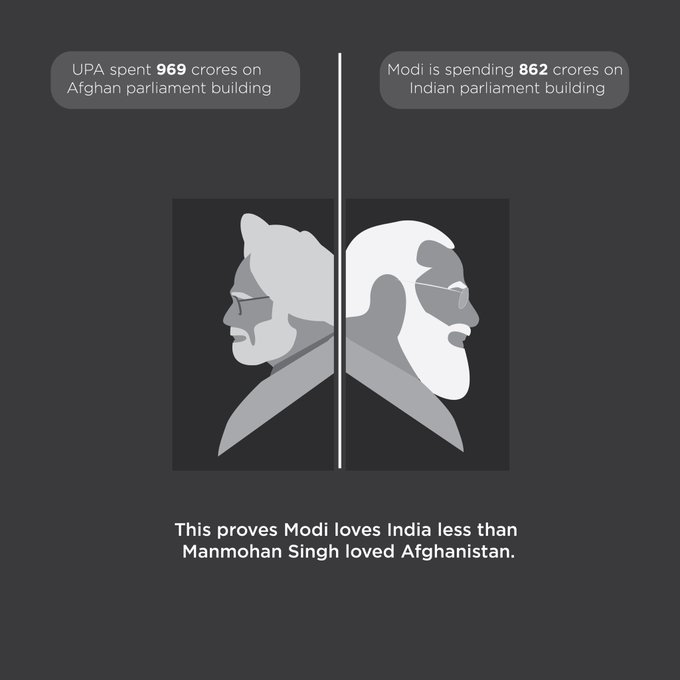New Parliament and Information Subversion


‘Modi Mahal’, ‘22,000 crores’, ‘superstition based on Vaastu and/or Hindu Baba’ – if you follow news, or social media, then you have heard these words about the Central Vista project multiple times. Most of this is typical political misinformation trade craft. A mix of half-truths, omission of inconvenient information, emotive name-calling, and complete fabrications. But this is happening daily, what is so special about this?



NOTHING. Or so I thought before I realized recently that if politics has been reduced to only propaganda, then why was this not countered by the pro government side using the same techniques of information warfare? For example, a counter question such as the following, from a private anonymous handle?


Of course, most of us would accept that helping Afghanistan is in our national interest. But then, so is building adequate and efficient infrastructure for our own democratic apparatus. If unreasonable, disingenuous, and emotional rhetorical arguments can be made about one, they can also be made about the other. If it does not add to constructive political dialogue, it still serves to expose hypocrisy of the opposition, thus discouraging it.
But such counter arguments and factual articles were largely missing in the face of one-sided barrage of misinformation on Central Vista. Some made efforts to highlight the correct numbers and background of the project. But in the context, it was defensive and inadequate. Yes, stating facts is not sufficient when the opposition is not interested in facts.
I discussed this with some people, and these were some of the possible reasons they offered.
While you can assess the reasons independently, if you are interested in protecting healthy public discourse, you can not escape the conclusion that allowing a free run to one sided propaganda is a grave concern. Such damage to public discourse has many risks: denial of fundamental rights to the vilified group, breaking down of institutions in the face of propaganda, subversion of consensus on what is national interest and denial of information to the masses. As common citizens, we must consider and flag this risk at every platform available to us and support balancing voices.
DISCLAIMER: The author is solely responsible for the views expressed in this article. The author carries the responsibility for citing and/or licensing of images utilized within the text.
1 Comment
You must be logged in to post a comment.

Waiting for more such articles written by you.